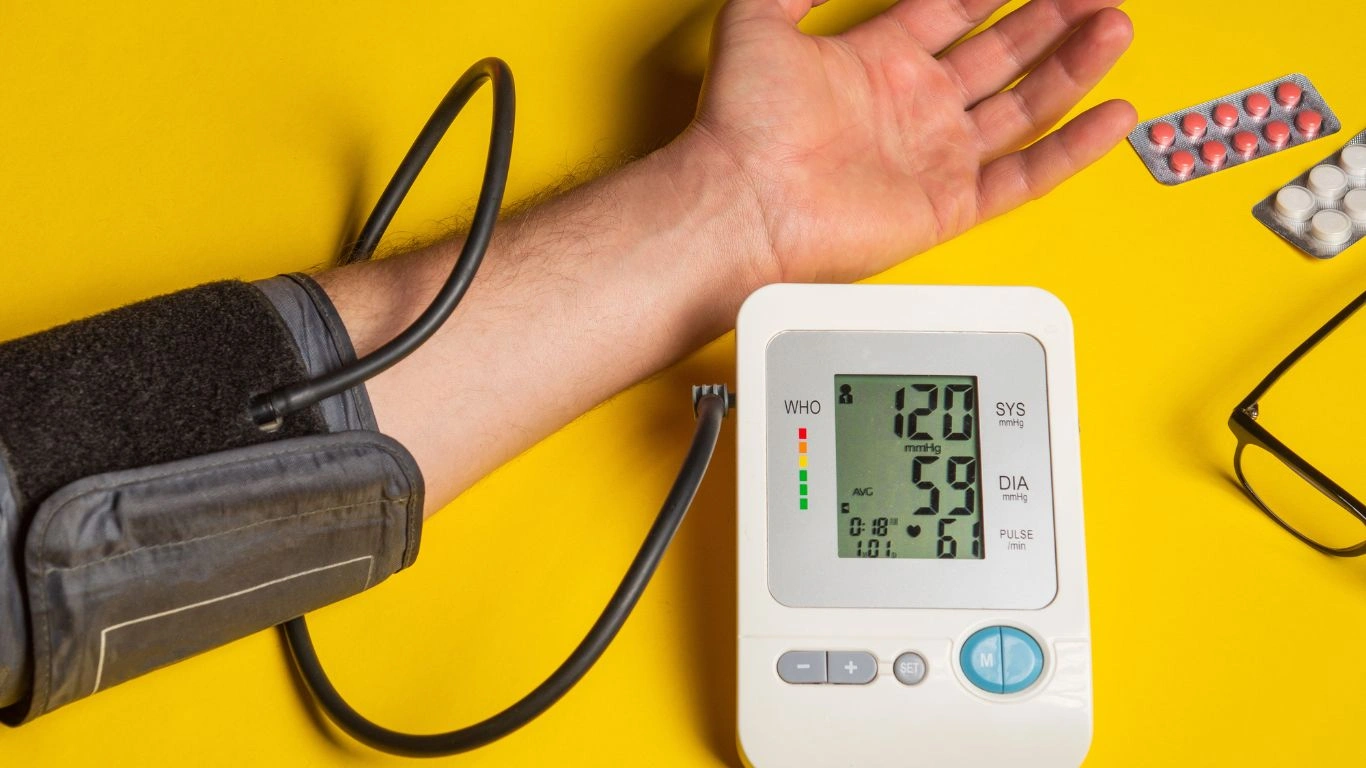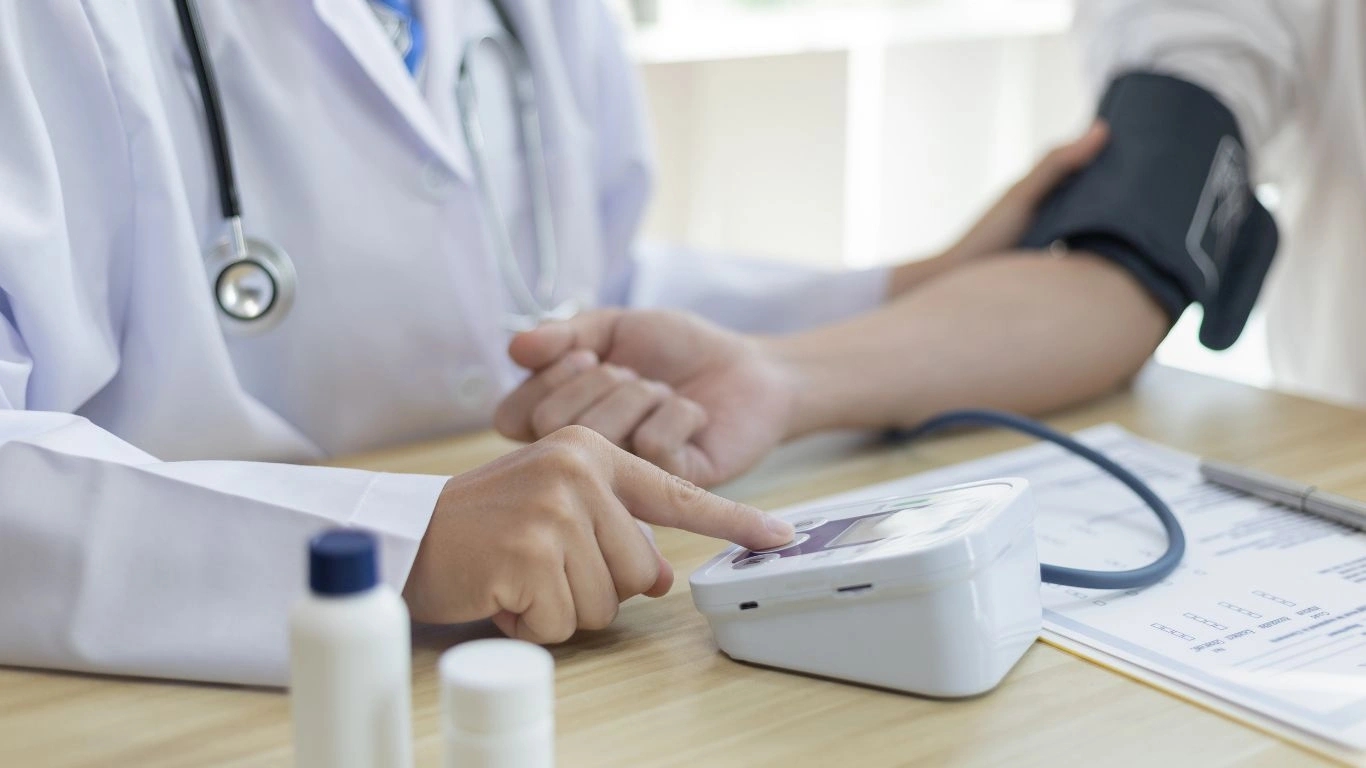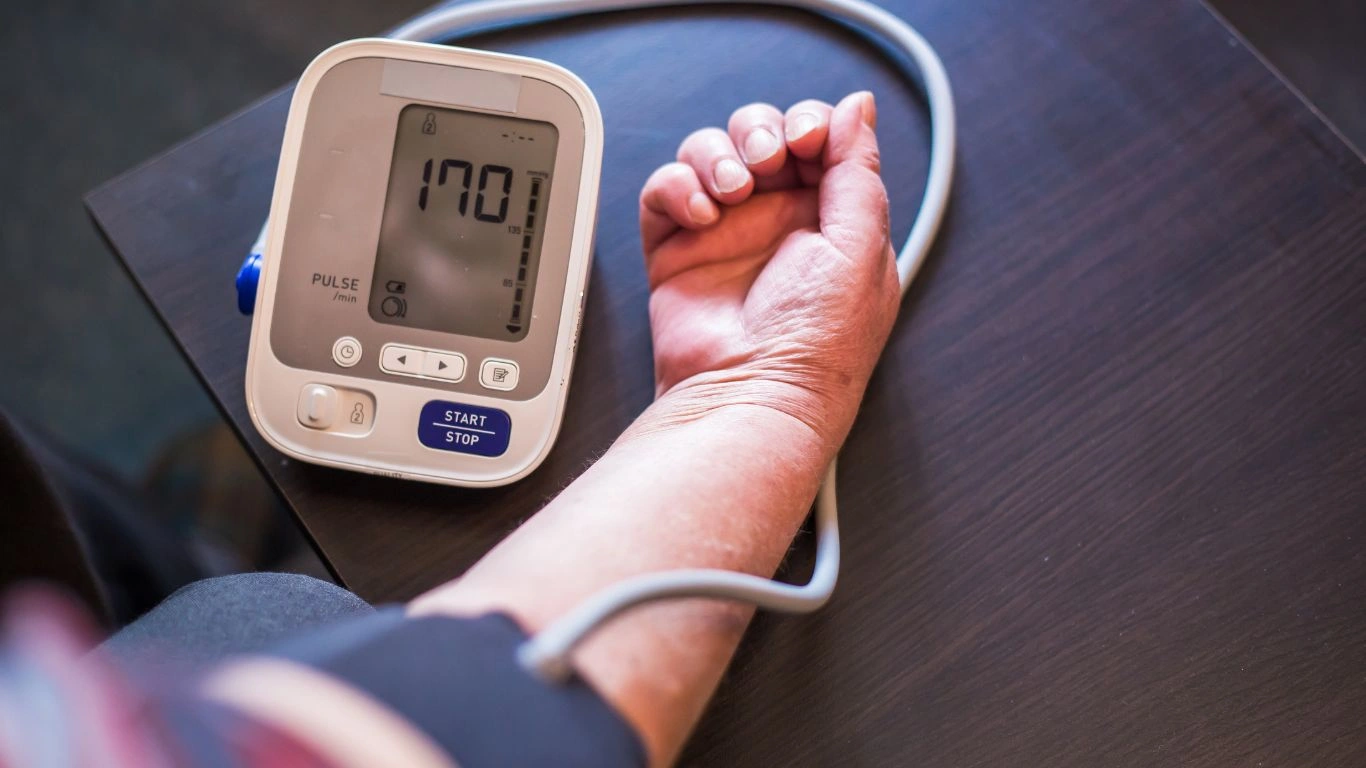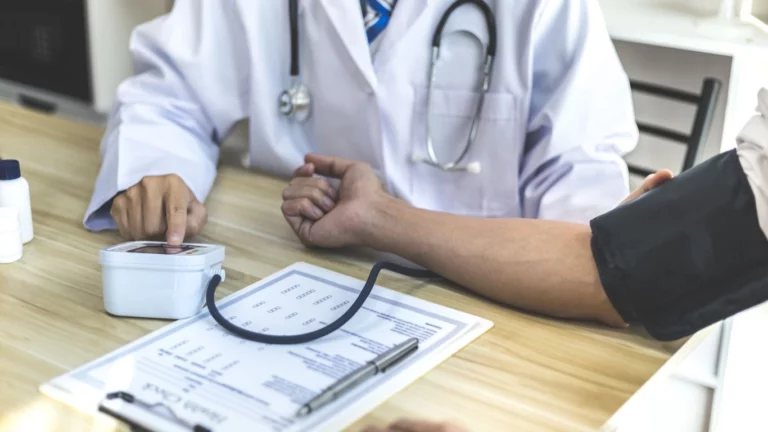How Hibiscus Flower Tea Reduces Blood Pressure Naturally and Effectively
Hi there! If you’re anything like me, you’re always on the lookout for natural ways to support your health and manage things like high blood pressure. As a hypertension expert, I’m passionate about exploring remedies that can help lower blood pressure in a safe and sustainable way. One such remedy that has recently caught my attention is hibiscus flower tea. You may have heard about its numerous health benefits, but did you know that hibiscus flower tea can be a game-changer when it comes to reducing blood pressure? In this blog, we’re going to dive deep into how hibiscus tea can work wonders for your heart and why it’s becoming a go-to drink for many people looking to manage hypertension naturally.
Understanding Hypertension and Its Risks
Before we jump into the magic of hibiscus flower tea, let’s take a step back and talk about hypertension, also known as high blood pressure. It’s something I deal with every day in my work, and it’s a condition that affects millions of people worldwide. Hypertension is often referred to as a “silent killer” because it usually has no obvious symptoms. Many people walk around with elevated blood pressure without even realizing it, which makes it so important to monitor it regularly.
In my practice, I’ve seen firsthand how dangerous uncontrolled high blood pressure can be. It increases the risk of heart disease, stroke, kidney failure, and other serious health issues. That’s why finding ways to reduce blood pressure is crucial, and one of the most interesting remedies I’ve come across is hibiscus flower tea.

How Hibiscus Flower Tea Works to Reduce Blood Pressure
Hibiscus and Its Active Compounds
If you’re wondering how exactly hibiscus tea can help with hypertension, let’s break it down. Hibiscus (Hibiscus sabdariffa) is a flowering plant that’s packed with active compounds like anthocyanins, flavonoids, and organic acids. These compounds are known for their antioxidant and anti-inflammatory properties, which have a direct impact on your cardiovascular health.
The secret lies in the way these compounds work together to support your blood vessels and improve overall circulation. Research has shown that hibiscus flower tea can help relax and widen blood vessels, allowing blood to flow more easily and reducing the overall strain on your heart. This makes it an effective natural option for lowering high blood pressure. From my personal experience working with clients, I’ve seen that adding hibiscus tea to a daily routine can make a noticeable difference in blood pressure levels, especially when combined with other heart-healthy habits.
Scientific Research Supporting Hibiscus Tea for Blood Pressure
You might be thinking, “Okay, that sounds great, but does it really work?” I totally get it. As someone who relies on evidence-based practices, I’ve dug into the research on hibiscus tea, and let me tell you—it’s impressive. Numerous studies have highlighted its effectiveness in reducing both systolic and diastolic blood pressure levels in people with hypertension.
One study published in the Journal of Hypertension found that participants who drank hibiscus tea experienced a significant reduction in their blood pressure compared to those who drank a placebo. Another study in Phytomedicine confirmed these findings, showing that hibiscus tea was as effective as some prescription medications in lowering blood pressure.
What makes this especially exciting is that hibiscus tea can provide a natural alternative to pharmaceuticals, which is often a preferred option for many of my clients who want to avoid potential side effects from long-term medication use. Of course, it’s always important to consult your healthcare provider before making any changes, but the research is clear—hibiscus flower tea can play a crucial role in managing hypertension.

The Role of Antioxidants in Hibiscus Tea
Protecting Your Heart with Antioxidants
Another reason hibiscus tea is so effective in lowering blood pressure is its antioxidant content. As a hypertension expert, I’ve always stressed the importance of antioxidants in maintaining a healthy heart. Oxidative stress, caused by an imbalance of free radicals and antioxidants in the body, is one of the key contributors to heart disease and high blood pressure. By increasing the number of antioxidants in your system, you can help protect your blood vessels and reduce the strain on your cardiovascular system.
Hibiscus tea is loaded with powerful antioxidants like flavonoids, particularly anthocyanins, which give the flower its vibrant red color. These antioxidants work to fight oxidative stress by neutralizing harmful free radicals in the body. This helps prevent the damage to blood vessels that can lead to hypertension and other heart problems.
From my own experience and the research I’ve seen, consuming hibiscus tea regularly can have a protective effect on the heart, supporting the health of your blood vessels and reducing the risk of developing more severe cardiovascular conditions in the future. It’s like giving your heart a nice, soothing hug from the inside out!
How to Enjoy Hibiscus Tea
Now that we know how hibiscus flower tea helps with blood pressure, you’re probably wondering how you can start incorporating it into your daily routine. The good news is that hibiscus tea is super easy to make and enjoyable to drink. You can either buy pre-made hibiscus tea bags or steep dried hibiscus flowers yourself. If you’re using dried flowers, simply steep about 1-2 teaspoons in hot water for about 5-10 minutes. You can enjoy it hot or cold, depending on your preference.
Personally, I like to drink hibiscus tea in the morning or during the afternoon when I need a little pick-me-up. It’s naturally tart and a bit tangy, which I find refreshing. You can even add a touch of honey or a slice of lemon to enhance the flavor. Whether you drink it in the morning or as a refreshing iced tea in the summer, hibiscus tea is an easy, tasty, and heart-healthy way to support your blood pressure.

Hibiscus Tea and Its Impact on Lifestyle Changes for Hypertension
Incorporating Hibiscus Tea into a Healthy Lifestyle
While drinking hibiscus flower tea is a fantastic way to naturally reduce blood pressure, it’s important to understand that managing hypertension is about more than just adding a single beverage to your routine. As someone who has worked with countless patients, I can tell you that a holistic approach is key to truly managing your blood pressure effectively. Hibiscus tea should be part of a balanced lifestyle, alongside other healthy habits like regular exercise, stress management, and a nutritious diet.
Over the years, I’ve seen how combining hibiscus tea with consistent physical activity and a heart-healthy diet can make a massive difference. The combination of exercise and hibiscus tea enhances blood circulation, making it easier for your body to keep your blood pressure in check. Plus, both hibiscus tea and exercise are excellent at reducing inflammation, which is a major contributor to high blood pressure.
Why a Heart-Healthy Diet Complements Hibiscus Tea
If you’re looking to take your hypertension management to the next level, consider pairing your hibiscus tea with a diet rich in fruits, vegetables, whole grains, and lean proteins. In my experience, clients who focus on eating whole, nutrient-dense foods see the best results. The Mediterranean diet is often my go-to recommendation for managing blood pressure. It’s full of heart-healthy fats from sources like olive oil, nuts, and seeds, which are known to reduce the risk of hypertension and cardiovascular disease.
And let’s not forget about the importance of reducing sodium intake. It’s something I emphasize regularly in my practice. Many people unknowingly consume way too much sodium, which can wreak havoc on blood pressure. By eliminating processed foods high in salt and focusing on whole, fresh foods, you can further enhance the blood pressure-lowering effects of hibiscus tea.

The Science Behind Hibiscus Tea and Its Blood Pressure-Lowering Properties
Hibiscus Tea and Vascular Health
As a hypertension expert, I’ve spent a lot of time learning about the mechanisms at play when it comes to how hibiscus tea lowers blood pressure. And let me tell you, it’s not just a casual claim. Research supports the idea that hibiscus tea can significantly improve vascular health. One of the ways hibiscus works is by relaxing blood vessels, allowing them to dilate and improve blood flow. This process is vital for lowering blood pressure because when the blood vessels are more relaxed and wide, it’s easier for blood to flow without putting pressure on the walls of the arteries.
The antioxidants found in hibiscus also play a role in this process. By reducing oxidative stress, they help prevent damage to the blood vessels and improve endothelial function. The endothelium is the thin layer of cells that line the blood vessels, and it plays a major role in regulating blood pressure. When the endothelium is functioning well, it can dilate and constrict blood vessels properly, helping to keep blood pressure stable.
Studies and Research: How Effective is Hibiscus Tea?
Of course, I always like to turn to science when talking about health topics. There’s a growing body of research that backs the effectiveness of hibiscus tea in lowering blood pressure. In fact, several studies have found that hibiscus tea is one of the most effective natural remedies for hypertension.
One of the most notable studies, published in the Journal of Clinical Hypertension, found that participants who drank hibiscus tea daily for just a few weeks experienced a significant drop in their systolic blood pressure (the top number) compared to those who drank a placebo. Another study published in Phytotherapy Research revealed similar findings, showing that hibiscus tea had a comparable effect to certain pharmaceutical blood pressure medications—but with fewer side effects.
What’s even more exciting about hibiscus tea is its ability to lower blood pressure without causing a sudden drop, which can be dangerous. The effects of hibiscus tea are gradual and gentle, making it a safe, natural option for those who want to manage their blood pressure over time without the risks associated with some medications.

Other Health Benefits of Hibiscus Tea
Boosting Cholesterol Levels
In addition to lowering blood pressure, hibiscus tea offers a range of other health benefits that make it an even more valuable addition to your daily routine. One of the most interesting benefits I’ve seen in my practice is its potential to help lower bad cholesterol (LDL) and increase good cholesterol (HDL).
Several studies have shown that hibiscus tea can positively influence cholesterol levels, which is important for heart health. By reducing LDL cholesterol and increasing HDL cholesterol, hibiscus tea can help improve overall heart function and reduce the risk of heart disease. In fact, drinking hibiscus tea regularly has been linked to improvements in lipid profiles, which further supports its role in maintaining cardiovascular health.
Supporting Liver Health
Another benefit of hibiscus tea that I’ve personally noticed in clients is its positive effect on liver health. The antioxidants in hibiscus flowers help protect the liver from damage caused by toxins and free radicals. Some studies have even suggested that hibiscus extract can help reduce fatty liver disease and improve liver function, which is essential for overall health and wellbeing.
For anyone looking to boost their overall health, incorporating hibiscus tea into your routine could also support your liver, adding yet another layer of benefit to this already impressive herbal tea.

How to Maximize the Benefits of Hibiscus Tea for Hypertension
Best Time to Drink Hibiscus Tea
If you’re wondering when the best time to enjoy hibiscus tea is, let me give you some tips based on my personal experience working with clients. There isn’t necessarily a “one-size-fits-all” approach, but the timing of when you drink your hibiscus tea can impact how it works for you.
For many people, sipping on a cup of hibiscus tea in the morning can kick-start the day with a boost in hydration and antioxidants. I find that drinking it early helps people set a positive tone for their health-focused choices throughout the day. If you prefer, you can also enjoy it in the afternoon as a refreshing, low-calorie alternative to sugary beverages. For some individuals, a cup of hibiscus tea before dinner can be a calming ritual that may also aid digestion and support heart health through the evening.
While I suggest drinking hibiscus tea consistently, you don’t have to stick to one specific time. Just make sure you’re drinking it regularly to reap the full benefits for blood pressure management. Of course, if you’re trying it out for the first time, you might want to start with just one cup a day and monitor how your body responds.
Pairing Hibiscus Tea with Other Lifestyle Habits
In my practice, I always recommend taking a multifaceted approach to health. That means pairing hibiscus tea with other healthy lifestyle habits to get the most benefit, especially when managing high blood pressure. Beyond just drinking hibiscus tea, there are a few other things you can do to support your blood pressure goals:
- Stay Active: Regular physical activity like walking, swimming, or yoga can do wonders for your cardiovascular health. Exercise improves circulation and helps your body maintain a healthy weight, both of which are important for controlling blood pressure.
- Stress Management: Long-term stress can be a significant contributor to high blood pressure. Incorporating relaxation techniques such as deep breathing, meditation, or mindfulness can help keep your blood pressure levels in check.
- Reduce Caffeine Intake: For some people, caffeine can temporarily raise blood pressure. If you’re sensitive to caffeine, it might be worth cutting back on caffeinated drinks like coffee or soda.
- Get Enough Sleep: Poor sleep can negatively affect your blood pressure. Aim for 7-9 hours of quality sleep each night to help your body recover and maintain healthy blood pressure levels.
When these healthy habits are combined with the powerful blood pressure-lowering effects of hibiscus tea, you’ll have a holistic strategy that can significantly improve your heart health.

Potential Side Effects and Considerations
Is Hibiscus Tea Safe for Everyone?
Hibiscus tea is generally considered safe for most people, and I’ve had many clients who’ve successfully incorporated it into their daily routines with great results. However, just like with any supplement or herbal remedy, it’s important to be mindful of potential side effects or interactions with other medications.
One consideration is that hibiscus tea can lower blood pressure, which is fantastic for those with high blood pressure. But if your blood pressure is already on the lower side, drinking too much hibiscus tea might cause it to drop too low, leading to dizziness or fainting. If you already have low blood pressure, I recommend talking to your healthcare provider before adding hibiscus tea to your routine.
Another factor to keep in mind is that hibiscus tea may interact with certain medications, such as those used for high blood pressure, diabetes, or blood thinners. If you’re taking medication for any of these conditions, make sure to check with your doctor before incorporating hibiscus tea into your diet. I always tell my patients to approach any new health supplement with caution, especially if they are on prescription medications.
Pregnancy and Hibiscus Tea
Additionally, while hibiscus tea is generally safe for most people, it’s best to avoid it during pregnancy. Some studies suggest that hibiscus may act as an abortifacient or could potentially cause complications, so it’s better to err on the side of caution. If you’re pregnant or planning to become pregnant, I highly recommend consulting your doctor before drinking hibiscus tea.
Moderation is Key
Like anything, moderation is key. While drinking hibiscus tea regularly can be beneficial, consuming too much can lead to some unwanted effects. It’s always wise to stick to a recommended serving size of about 1-2 cups per day. And, as with any new health trend, start slow to see how your body reacts.

Conclusion: Is Hibiscus Tea Right for You?
In my experience, hibiscus flower tea is a fantastic natural option for managing blood pressure. It’s packed with antioxidants, promotes better circulation, and can be a refreshing, flavorful addition to your routine. But it’s important to remember that, while hibiscus tea can help reduce blood pressure, it’s not a magic solution. A healthy diet, regular exercise, stress management, and proper sleep are all key components in maintaining overall heart health.
Ultimately, if you’re looking for a natural way to support your blood pressure, hibiscus tea is definitely worth considering. Just remember to check with your healthcare provider, especially if you’re on medication or have any underlying health conditions.
As always, I encourage you to approach your health with care, curiosity, and balance. With a thoughtful approach, hibiscus tea can be a powerful ally in your heart-health journey!
Disclaimer: This article is for informational purposes only and is not intended to provide medical advice. Please consult with your healthcare provider before making any changes to your diet or health regimen.
References:
1. Journal of Clinical Hypertension: Study on hibiscus tea and blood pressure reduction
2. Phytotherapy Research: Hibiscus tea and cardiovascular health

Dr. Gwenna Aazee is a board-certified Internal Medicine Physician with a special focus on hypertension management, chronic disease prevention, and patient education. With years of experience in both clinical practice and medical writing, she’s passionate about turning evidence-based medicine into accessible, actionable advice. Through her work at Healthusias.com, Dr. Aazee empowers readers to take charge of their health with confidence and clarity. Off the clock, she enjoys deep dives into nutrition research, long walks with her rescue pup, and simplifying medical jargon one article at a time.







